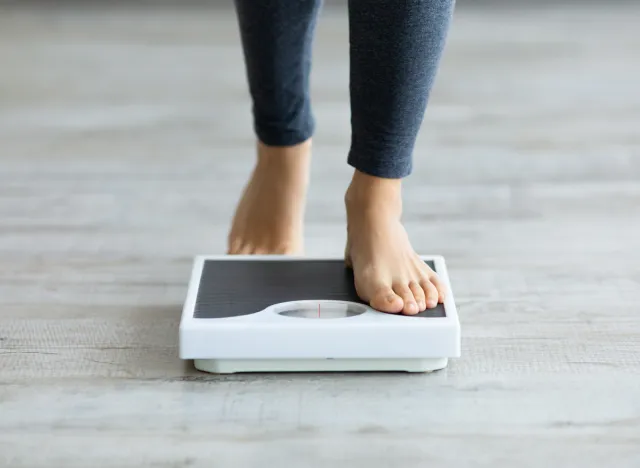Melatonin is a hormone that helps regulate the body's sleep-wake cycle, a.k.a. the circadian rhythm. Its levels increase at night, when it puts the body into a winding-down state that's conducive to sleep. Our bodies produce it naturally, but some people take a melatonin supplement to help with insomnia or jet lag. But is it safe to take every day? Here's what taking melatonin every day does to your body, according to science.
It May Help You Fall Asleep

You may have trouble falling asleep and are wondering about whether a melatonin supplement can help. Taking a melatonin supplement may help you fall asleep faster, particularly if you have a circadian rhythm sleep disorder such as delayed sleep-wake phase, which develops when you regularly go to bed late and night and sleep late into the morning.
It May Cause Vivid Dreams or Nightmares

Some people report having unusually vivid or disturbing dreams when taking a melatonin supplement. That's because melatonin can increase the time spent in REM sleep, the sleep cycle that causes vivid dreams. During sleep, melatonin releases vasotocin, a protein that regulates REM sleep. So taking a melatonin supplement may boost vasotocin and increase vivid dreaming. But it's not clear that taking higher doses of melatonin causes more dreams or nightmares, the Cleveland Clinic says.
It May Make You Groggy The Day After Taking It

Like many sleep aids, melatonin might make you feel drowsy or sluggish the next day. You can limit this effect by taking the minimum effective does of melatonin to help you fall asleep. Some melatonin supplements contain as much as 10mg of melatonin, but a higher dose isn't necessarily better. Johns Hopkins Medicine advises taking 1 to 3mg two hours before bedtime.
It May Give Your Metabolism A Boost

Poor sleep is linked to increased appetite and weight gain. Getting more sleep by taking a melatonin supplement might help. An analysis of 15 studies published in the journal Chronobiology International looked at research on how melatonin affects calorie intake and the hormones that regulate hunger and fullness. They found that melatonin does seem to benefit the metabolism and "may be a potential therapeutic agent against endocrine-metabolic disorders."
It May Help With Jet Lag and Related Symptoms

Studies have found that taking 2 to 3 milligrams of melatonin daily when traveling to a different time zone seems to improve the symptoms of jet lag, including decreased alertness, daytime sleepiness and fatigue. To ease jet lag, experts advise taking melatonin two hours before bedtime at your destination, starting a few days before your trip.
It's Safe For This Long

"If taking melatonin for sleep isn't helping after a week or two, stop using it," says Luis F. Buenaver, Ph.D., C.B.S.M., a sleep expert with Johns Hopkins. If melatonin does help, it's safe for most people to take nightly for one to two months. If you continue to have trouble falling asleep, talk with your doctor.
No comments:
Post a Comment